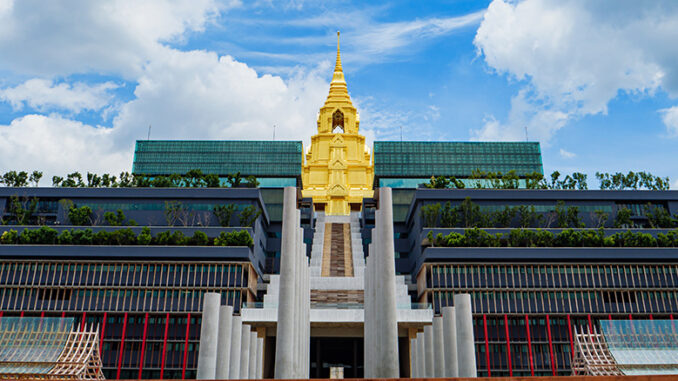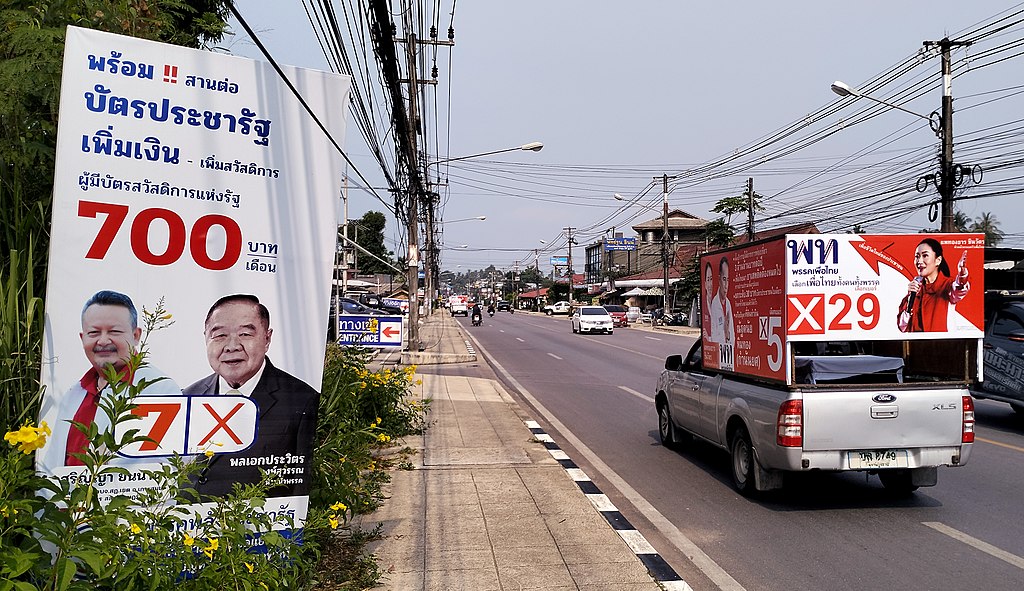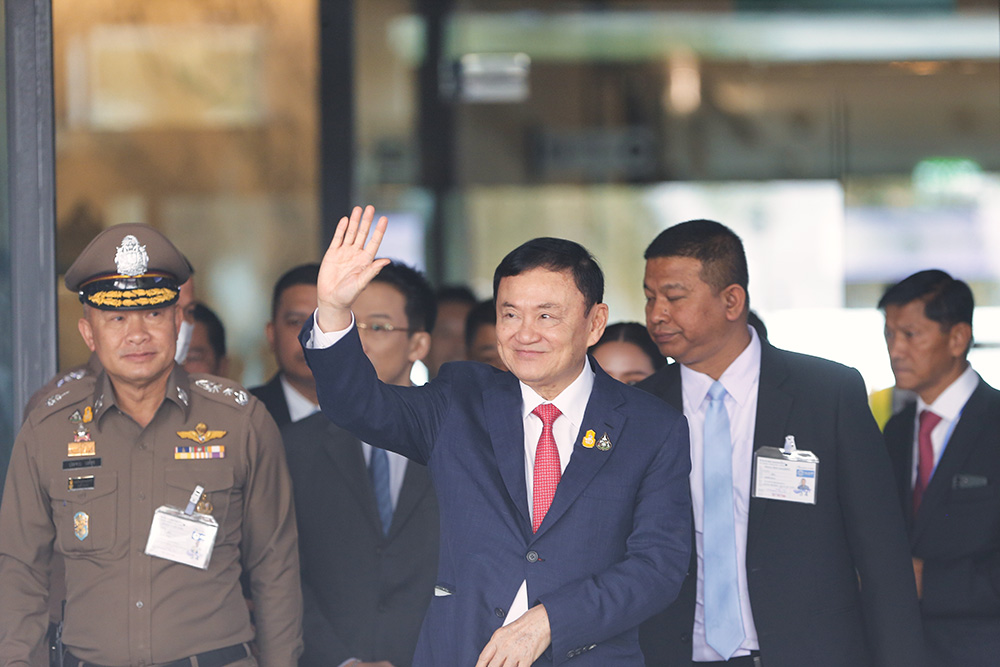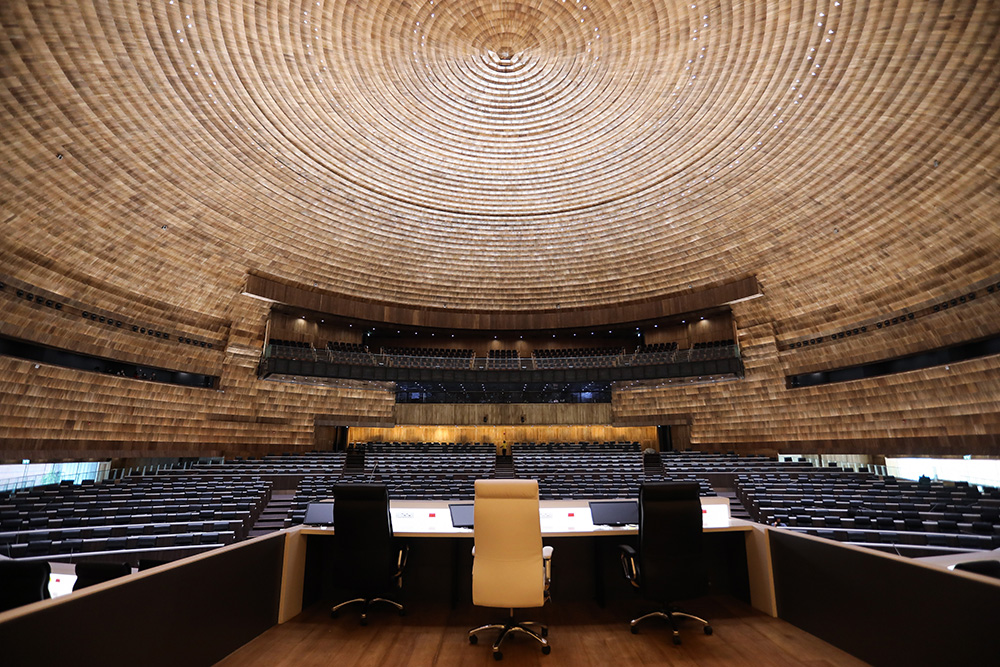
On June 27, 2024 elections for Thailand’s Senate were finalized and results announced to the public. The Bangkok Post described the outcome as a success noting that the “election gave Thai citizens their first taste of direct democracy”. Perhaps the writers at the Bangkok Post should take a refresher course on politics as the ‘election’ was another in a string of junta heritage travesties to unfold in plain sight. Regardless of the commentary on whether democracy has finally come back to Thailand or not, the results deserve a bit of analysis as it poses some interesting clues to the future of Thai politics.
There appear to be three main winners in the election; generals/police/former civil servants, academics and the Bhumjaithai party. The latter is most impactful and will be explained shortly. The largest portion of the 200 member Senate will be former military/police and civil servants known to have close links to the previous government and former PM Prayut Chan-ocha. The second group of largely independents garnered 28 seats and comprise academics and advocates. The last group are persons with known affiliations to the Bhumjaithai party of Interior Minister Anutin Charnvirakul and Newin Chidchob who won big with some estimating 52 Senators. This is inferred by provincial origin and known affiliation where Ayutthaya, Buriram, Satun, Ang Thong, Amnat Charoen, Yasothon and Surin provinces were heavily represented in the final tally. These are all provinces where Bhumjaithai took or a majority of House seats in the 2023 general election. An interesting loser in the Senate race was Somchai Wongsawat, former PM and relative of Thaksin Shinawatra who was considered a frontrunner for Senate Speaker.

Impact on Puea Thai
In the aftermath of the 2023 general election a ‘grand bargain’ was struck between Thaksin Shinawatra and his erstwhile enemies of the previous 15 years allowing him to return to Thailand. Implicit in this was that his party, Puea Thai would be allowed to form a government to keep the progressive Move Forward party out of power.
With the Puea Thai government in power and progressive challenge seemingly beaten back, a relative calm has settled across the Kingdom with politics taking a backseat to daily news. After some 10 months in power a poll released by the King Prajadhipok Institute shed some very interesting light on Thai public opinion of the Puea Thai led government.
The poll highlighted two important points. The first was the popularity of leading politicians. Opposition leader Pita Limjaroenrat was by far the favorite politician with some 46.9% wanting him as PM. A distant second was former PM Prayut Chan-o-cha at 17.7%. Most striking was Paetongtarn Shinawatra, Thaksin’s daughter and Puea Thai party leader at 10.5% and current PM Srettha Thavisin with a lowly 8.7% popularity. This points to two important parallel strands of the ‘mood’ in Thailand. One, the establishment’s war on Move Forward and possible impending dissolution of the party is only serving to make the reformist leader and party stronger. Two, the closer Thaksin and Puea Thai get to the conservative establishment, the more unpopular they become.
The second important takeaway of the poll was that if an election were held today, the Move Forward party would increase its House seat total from 151 to 208, whilst Puea Thai would drop from 141 to only 105. Needless to say this caused eyebrows to rise.
There are a couple of reasons for the drop in popularity. Puea Thai was not allowed to use the 2024 budget as it was approved some 5 months late and consisted of the previous governments programs. The budget for 2025 is laden with military spending and a lack of priority for social spending and upskilling, which the Thai economy desperately needs. This indicates the power that the military and former government still have over the current government. The Thai economy continues to stagnate, the stock market continues to be flat while Thai households labor under heavy debt which weighs on growth. These are but a few of reasons for the dip in popularity.
Second, is the lack of any recognizable progress on policies put forth by the party. The digital wallet policy has floundered in constant rows with the Bank of Thailand. The big PR move around the ‘massive Songkran’ festival that was to take place across all 77 provinces for the entire month of April was a dud with Songkran being no more festive than usual. Big policy promotions of a land bridge and visa exemptions to boost tourism and attempts to woo foreign investors have so far failed to pan out.

Thaksin and Puea Thai: Out of Step with the Times
Thaksin is often touted as a populist. This is not so. Thaksin was, and is a Thai politician cut from the traditional Thai political cloth. He differed from his predecessors and contemporaries in that he listened to what people wanted and responded. These were the hallmark policies of 30 Baht healthcare, OTOP, one million Baht village funds and others for which he is rightly loved and remembered to this day. The problem is that these policies were massive, universal and one off winners. No Thaksin backed government has been able to match those successes.
Thaksin’s response to the party’s failing policies and downtick in popularity appears to be reverting to old school politics of recruiting provincial bosses and bringing powerful provincial families into the Puea Thai coalition. This was seen in his trips to Korat, Phuket, Pathum Thani and Rayong of late to meet with provincial power brokers. The problem with this is that many of these families lost in the last election. Where provincial powerbrokers did well, in the lower Northeast and South, Bhumjaithai and the Democrats already control the field.
This brings us back to the original point of the recent Senate elections. The Senate while no longer having the power to co-select the PM, remains a very powerful body. It must co-approve legislation and the budget and selects powerful and highly politicized ‘independent bodies’ including the Constitutional Court, Election Commission and National Counter Corruption Commission. These will act as powerful checks on political foes and challengers, likely including Thaksin and Puea Thai if they step out of the conservative fold.
Puea Thai has been severely weakened by its relationship to Thailand’s discredited conservative elites in order to secure Thaksin’s amnesty. This coupled with Thaksin’s strategy of doubling down on provincial politics when the tide of Thai politics is one of reform will likely lead to a further erosion of support. All of this coupled with Bhumjaithai and the former governments securing of the Senate will only increase their bargaining power over a weakened Puea Thai. It is estimated that Puea Thai perhaps lost upwards of 1-2 million voters when Puea Thai defected and formed the current government. These parties consists of many of those directly responsible for ousting Thaksin in 2006 and his sister in 2014. These military and conservative figures bear direct responsibility for the stagnation of Thailand over the previous decade and many, though by no means all of the ills Thailand is currently faced. Lastly, Thaksin’s amnesty proved once and for all to the Puea Thai/Red Shirt faithful that Thaksin is in it for Thaksin.

Looking Forward
Thaksin secured his own safety in the deal that allowed for his return. But he did this to the detriment of his political brand and party. Public opinion of Puea Thai is at an all-time low with prospects of falling to a large middle size party in the next election. Thaksin was never a deep reformer and continues to be unwilling to challenge centers of power or engage in the deep structural reforms which Thailand desperately needs and the public wants. Whether Thaksin and Puea Thai have chosen the correct path will be demonstrated in 2025 when provincial and local elections are slated to be held. National and local politics in Thailand differ greatly in their motivating forces and outcomes. Provincial politics and power networks still hold sway in local and provincial elections. These elections will be a bellwether for how well or poorly Puea Thai is likely to do in the next general election.
William J. Jones
Assistant Professor, Mahidol University International College, Thailand
Banner: Sappaya-Sapasathan (The New Parliament of Thailand), Government office, National Assembly of the Kingdom of Thailand with golden pagoda on the chao phraya river in Bangkok. Photo: AU USAnakul, Shutterstock
